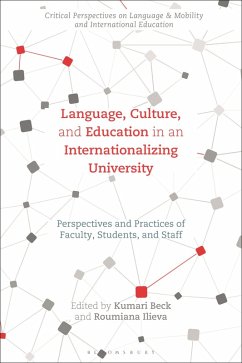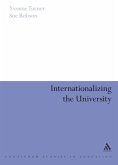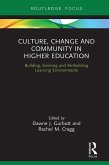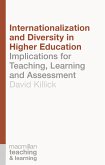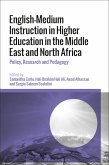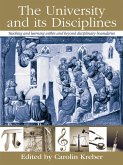This book offers a multi-dimensional analysis of the experiences of faculty, students, and staff at a Canadian university that emphasizes international education, providing an ethnographic lens for understanding globalization and internationalization of higher education on a wider, global scale.
The collaborative work of multiple authors based in different departments and roles within the university offers a holistic picture of current international education policies and practices, and how they coalesce to shape the experiences of all affected stakeholders. The book focuses on questions of cultural difference and the development of intercultural capital and highlights engagement with English dominance, language matters and multilingualism in everyday experiences and pedagogical practices in the institution. The contributors address implications for attending to linguistic and cultural diversity in the policies and practices of an Anglo-dominant university that are applicable to similar contexts worldwide.
As a self-study from a reputed university, the book provides valuable insights for higher education program leaders and decision makers to strategically rethink the value and quality of the internationalization activities they engage in, their scholarship and creative activities, and, above all, their commitment to ethical internationalization.
The collaborative work of multiple authors based in different departments and roles within the university offers a holistic picture of current international education policies and practices, and how they coalesce to shape the experiences of all affected stakeholders. The book focuses on questions of cultural difference and the development of intercultural capital and highlights engagement with English dominance, language matters and multilingualism in everyday experiences and pedagogical practices in the institution. The contributors address implications for attending to linguistic and cultural diversity in the policies and practices of an Anglo-dominant university that are applicable to similar contexts worldwide.
As a self-study from a reputed university, the book provides valuable insights for higher education program leaders and decision makers to strategically rethink the value and quality of the internationalization activities they engage in, their scholarship and creative activities, and, above all, their commitment to ethical internationalization.

